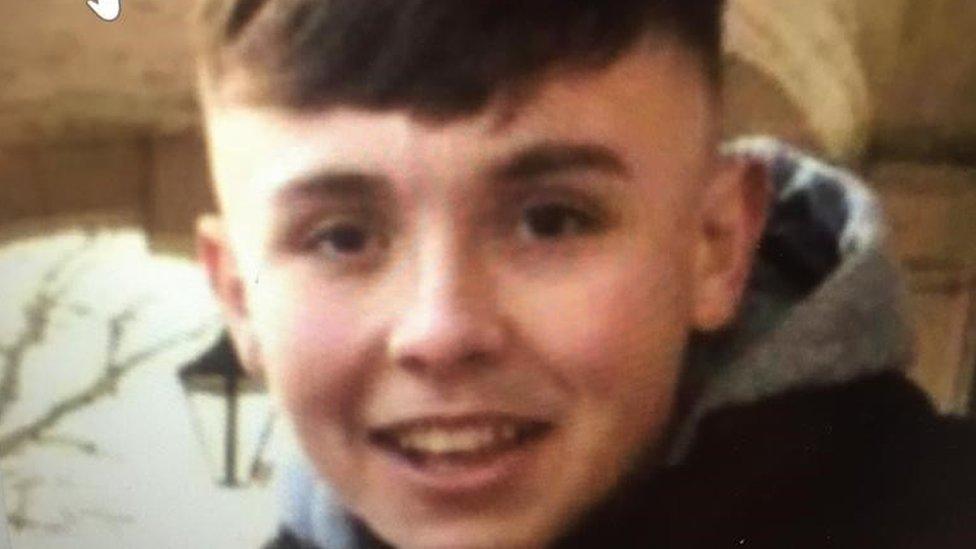Anne Longfield: Vulnerable children 'seen as data points'
- Published
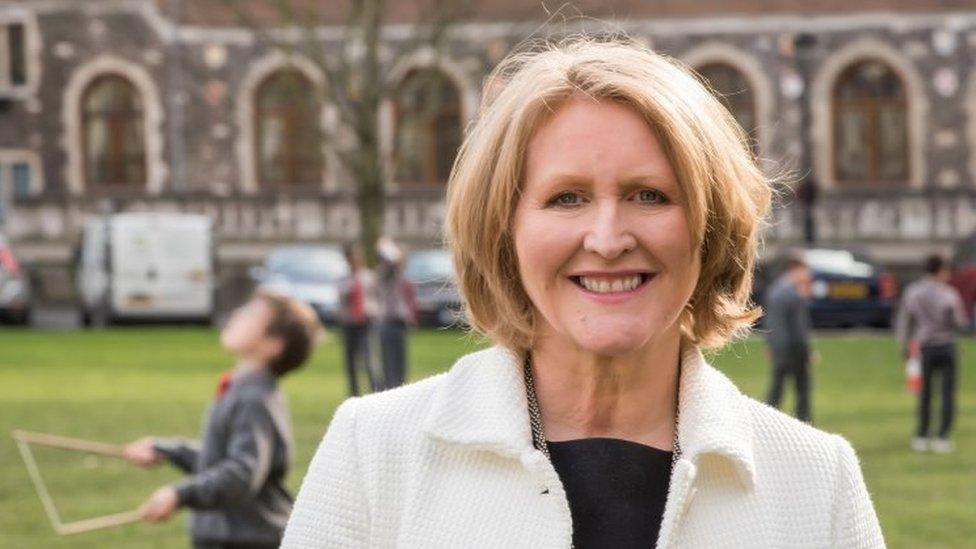
Anne Longfield has been England's children's commissioner for six years
Children exploited by gangs are being failed by adults who "simply don't see them", the Children's Commissioner for England has said.
In her final speech in the role, Anne Longfield highlighted the case of 16-year-old Jacob, who died after being coerced into drug trafficking.
She condemned the "national scandal" of a fifth of children leaving school without basic qualifications.
The government said it had prioritised protecting vulnerable children.
The children's commissioner's six-year term ends this month, and she spoke earlier to a virtual conference of more than 2,000 people.
Jacob, 16, was found dead in his bedroom in April 2019. A serious case review showed he had not been provided any type of education for 21 months.
The report exposed failings by the local authorities and police, which left him to be targeted by so-called "county lines" gangs.
Ms Longfield said Jacob was just one of many young people failed by Whitehall officials who need to rethink their priorities.
"I have been shocked to discover how many of these officials have never met any of the children they are responsible for," she said
"So many seem to view them as remote concepts or data points on an annual return.
"This is how children fall through the gaps - because too often the people in charge of the systems they need simply don't see them and try to understand their world."
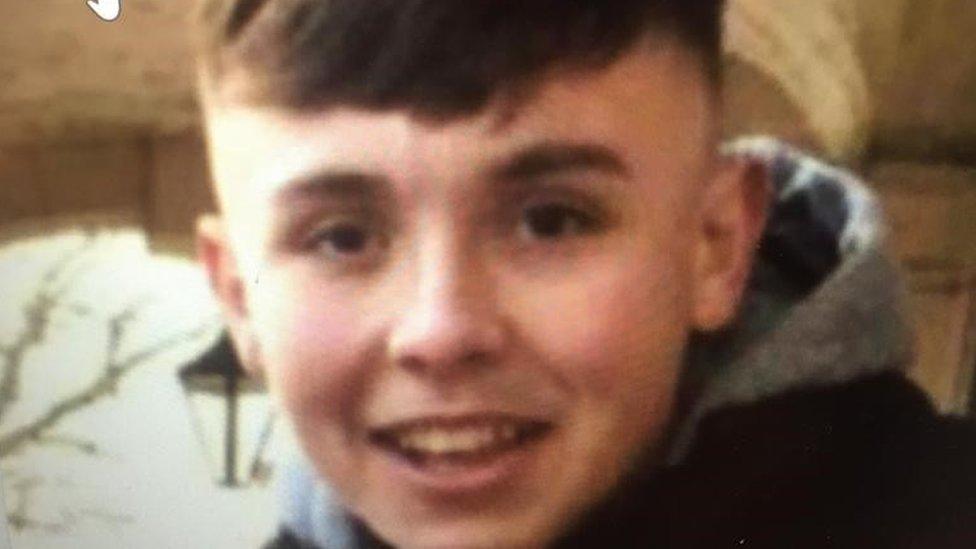
Jacob was "coerced and controlled" into committing crimes for drug gangs
Ms Longfield also mentioned Corey Junior Davis and Jaden Moodie, two other children "caught up in gang violence who were let down by a succession of adults whose job it was to keep them safe".
She said the "basic flaw" in how the government works is that "different parts of the system know different areas of these children's lives, but nobody connects the dots".
In her speech, she called for the government's "build back better" strategy to focus on "rethinking our priorities and the way we care for children".
She said: "It's impossible to overstate how damaging the last year has been for many children.
"Covid is the biggest challenge to our society in 70 years. But also an opportunity to reflect and rebuild."
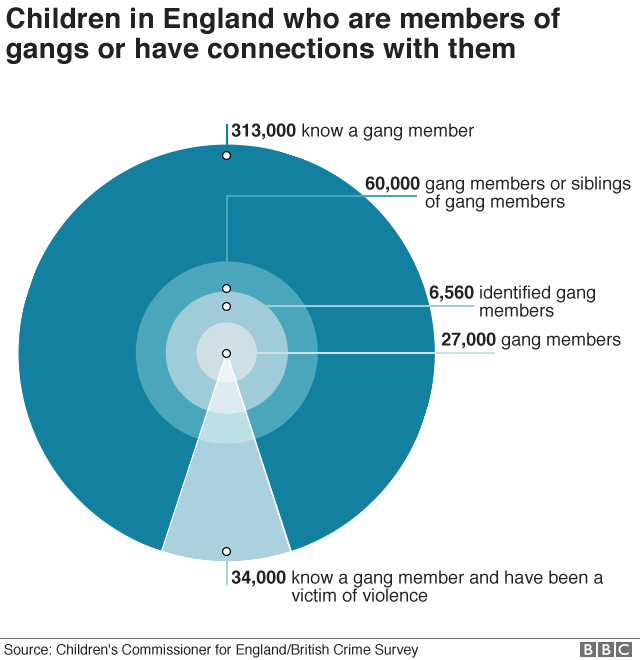
Jacob, from Banbury, was coerced into a life of crime, and the report said his schooling absence played a "significant role" in leaving him vulnerable to being exploited.
He was recorded as a suspect or an offender in 26 police reports, mostly for violent crimes, but was never brought before the courts.
Ms Longfield said: "This was not some evil criminal mastermind.
"This was a child who the report says talked to his friend about buying a school uniform and walking into school, just to feel like the other kids."
A coroner concluded he was "intoxicated and distressed" when he died but said there was "insufficient evidence" that he intended to kill himself.
Investigators found there was "a lack of responsibility and accountability" in the council's education department.
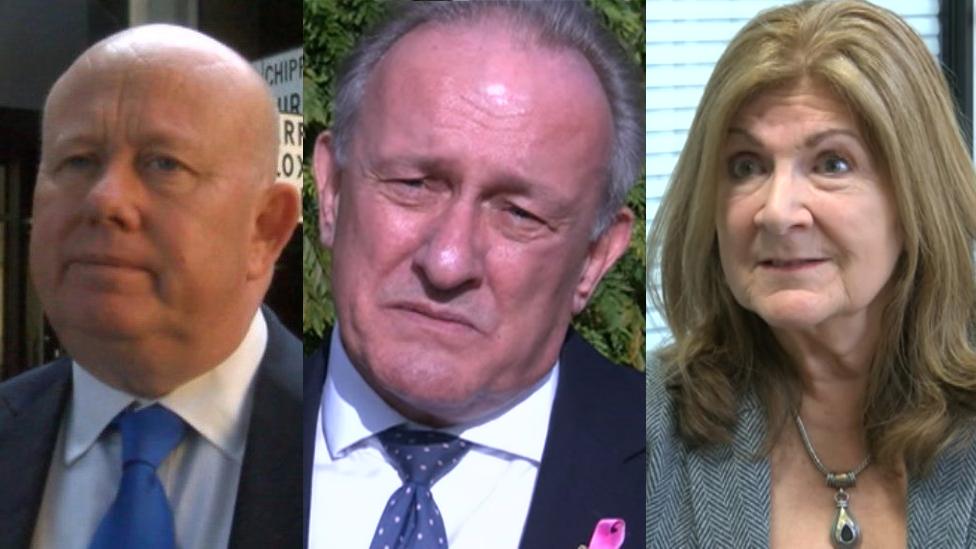
Right to left: Councillors Ian Hudspeth, Steve Harrod and Lorraine Lyndsay-Gale all declined to comment on the council's failings
Oxfordshire County Council admitted "more should have been done" but has refused to answer further questions on the case.
Thames Valley Police said it recognised it did not get the "balance right" in Jacob's case between "dealing with children who are exploited but may also pose a risk to and offend against others".
A government spokesperson said: "Protecting vulnerable children has been at the heart of our response to the pandemic, driven by our commitment to level up opportunities and outcomes.
"Anne Longfield has been a tireless advocate for children, and we're grateful for her dedication and her challenge on areas where we can continue raising the bar for the most vulnerable."

Follow BBC South on Facebook, external, Twitter, external, or Instagram, external. Send your story ideas to south.newsonline@bbc.co.uk, external.
- Published19 January 2021
